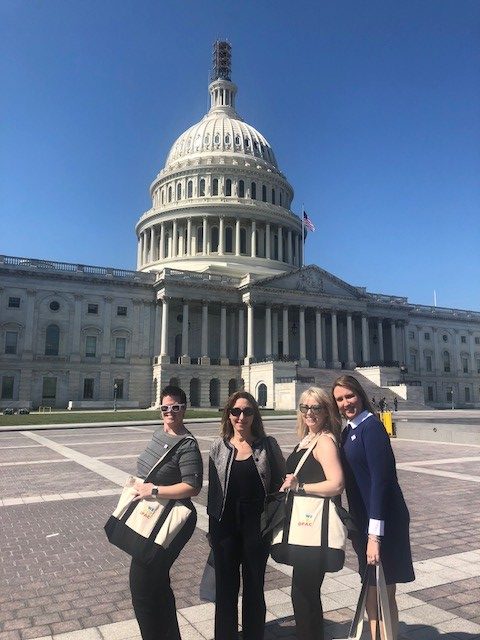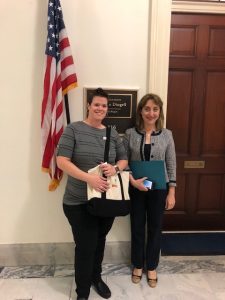
On October 1, the Endocrine Society partnered with the Diabetes Patient Advocacy Coalition to advocate for increased access to diabetes self-management training services and to educate Members of Congress about ways to address rising insulin costs.
The joint Hill Day marks the first time that Society members have accompanied patients, caregivers, and diabetes educators to Capitol Hill to discuss issues impacting the field of endocrinology. We also conducted a Congressional briefing to provide policymakers with an overview of the impact of affordable access challenges to insulin and the need for increased utilization of diabetes self-management training. Society member Nazanene Esfandiari, MD, associate professor and service chief, Division of Metabolism, Endocrinology and Diabetes at the University of Michigan, moderated a panel composed of Jasmine Gonzalvo, PharmD, BCPS, BC-ADM, CDE, LDE, clinical associate professor, College of Pharmacy at Purdue University and Stewart Perry, secretary of the National Diabetes Volunteer Leadership Council, and vice chair of the Diabetes Patient Advocacy Coalition. The briefing provided an opportunity for Congressional staff to learn about issues that make it challenging for people with diabetes to effectively manage their disease.

New Legislation to Cover Diabetes Self-Management Training – While patients currently have access to diabetes self-management training services, only 3% – 5% of Medicare beneficiaries utilize the benefit. To address these barriers, Congressman Tom Reed (R-NY) and Congresswoman Diana DeGette (D-CO) introduced the Expanding Access to Diabetes Self-Management Training Act. The Endocrine Society and DPAC advocated for co-sponsorship of this legislation in more than 30 offices throughout the day.

Access to Affordable Insulin – In addition to discussing DSMT, members also educated Congressional offices about the need to address rising insulin costs. Over the past 15 years, insulin costs have nearly tripled. This has forced patients to make difficult, sometimes life-threatening, decisions about their treatment. The Endocrine Society released a position statement that will be featured in the November issue of Endocrine News, outlining steps that stakeholders across the supply chain can take to address this issue.
The Congressional Diabetes Caucus is also investigating additional steps that can be taken and will issue a report in the coming weeks detailing these actions. We will include additional information on this report in a future issue of Endocrine News.

